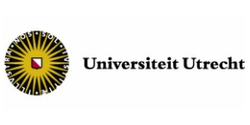PhD: Spatial Agent-based Modelling of Policy Measures to Improve Diet Quality
Updated: 15 Apr 2025
This PhD project, part of Exposome-NL, offers a unique opportunity to assess the effectiveness of food environment policies on diet quality aiming to prevent obesity and related disease risks, while working on improving these policies through actionable recommendations.
Your job
The pandemic of obesity and related diseases is among the most pressing problems in public health. Interventions to improve diet quality at an individual level are often ineffective in the long run, since they disregard the contextual drivers, such as our food environment, that shape dietary behaviours. Therefore, the aim of this PhD project is to assess the combined effectiveness of various policy interventions targeting the food environment on diet quality to prevent obesity and related disease risks. This assessment will be done by building, calibrating, validating, and applying a spatial agent-based model.
The project is a geoinformation challenge and at the same time uses domain-specific knowledge from food and health sciences. In this project, you will:
- build a spatial agent-based model of individuals and their dietary behaviors in relation to their food environment, in consultation with a stakeholder group;
- calibrate and validate this model with survey and demographic data;
- use this model to simulate the effects of various policy measures targeting the food environment to improve diet quality;
- compare these results to the results of traditional health impact models; and
- translate the model results into recommendations for policy action.
The evaluation of effectiveness of contextual interventions requires research methods different from the traditional ones in epidemiology, since the randomised controlled trial - the gold standard to assess causality in the medical field - is often not feasible. Agent-based modelling has been proposed as a method to evaluate the effectiveness of policy interventions in complex systems, since it can model interactions between agents and their food environment. Furthermore, it allows modelling different scenarios (interventions and their combination), varying effects on subpopulations, feedbacks, and potential side-effects or spill-over effects. However, the use of agent-based modelling in nutritional epidemiology is thus far limited.
The position is part of Exposome-NL, a Dutch consortium of over fifty scientists from different disciplines, universities and medical centers that systematically sequences the environmental factors influencing our health. You will work in a multi-disciplinary team consisting of geo-informaticians from the Faculty of Geosciences, Utrecht University, and nutritional epidemiologists from the Amsterdam University Medical Center (VUmc). You will closely cooperate with a PhD candidate at Amsterdam UMC, who will identify the various potential policy interventions and develop a causal diagram describing the different pathways by which they may affect diet quality. Both of you will work on the same case studies.
Requirements:
We are looking for someone with the following qualifications:
- at the start of the position, an MSc degree in geoinformatics, computer science, (spatial/geographic) data science, or in a thematic domain, such as epidemiology, food science or health geography, with a considerable component of computational science or data science;
- an interest in dietary quality and behaviours;
- an interest in the design of conceptual as well as computational models based on causal domain knowledge and behavioural theory;
- experience in handling spatial data;
- programming and (agent-based) modelling experience, preferably in Python;
- proficiency in English and preferably also in Dutch;
- strong communication skills;
- the ability to work independently as part of an interdisciplinary research team.
Salary Benefits:
We offer:
- a temporary position, initially for one year with an extension to a total of four years upon a successful assessment in the first year, and with the specific intent that it results in a doctorate within this period.
- a working week of 38 hours and a gross monthly salary between €2,901 and €3,707 (salary scale P under the Collective Labour Agreement for Dutch Universities (CAO NU));
- 8% holiday pay and 8.3% year-end bonus;
- a pension scheme, partially paid parental leave and flexible terms of employment based on the CAO NU.
In addition to the terms of employment laid down in the CAO NU, Utrecht University has a number of schemes and facilities of its own for employees. This includes schemes facilitating professional development, leave schemes and schemes for sports and cultural activities, as well as discounts on software and other IT products. We also offer access to additional employee benefits through our Terms of Employment Options Model. In this way, we encourage our employees to continue to invest in their growth. For more information, please visit Working at Utrecht University.
36 - 40 hours per week
Princetonlaan 8a

